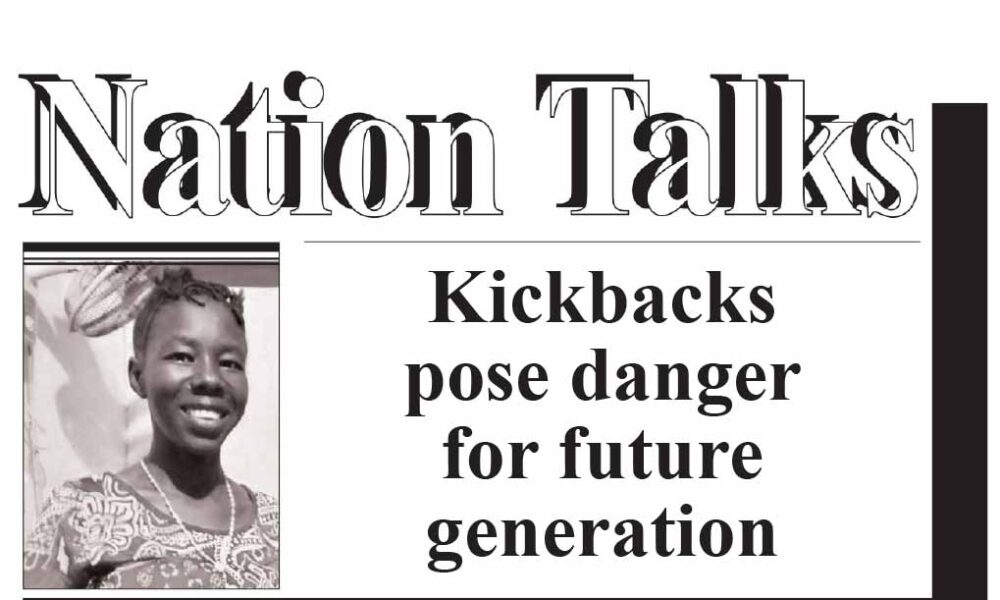This country plagued by kickbacks, poses a danger to future generations.
It is a practice existing in all government institutions from the highest level downward and has persisted since South Sudan became independent. The country is under pressure, particularly regarding employment opportunities, which are not easily accessible and often involve atrocities such as sexual harassment. For six (6) months, those with influence employ individuals who create substantial problems, leaving many unsettled. That is why some government institutions are managed by individuals with secondary-level qualifications.
Constitutional rights favour foreign companies rather than nationals; they open businesses, and NGOs even undertake work that should be handled by locals, while highly qualified individuals are overlooked in favour of foreigners who are regarded as experts despite having similar qualifications. The foreign companies that oppress nationals include international insurance companies, banks, and telecommunications firms. In these companies, you find that even marketers and cleaners are foreigners, and the level of kickbacks is exceptionally high.
Companies and NGOs will not employ individuals without kickbacks and advise them to remain silent, or else their contracts will be terminated as they are threatened, simply because of the high rate of corruption in the country.
Organisations are the worst, guided by certain individuals in governmental positions who perpetuate this mess because they receive payments to protect foreign companies and organisations. This is why even a foreigner has the right to oppress nationals over their rights, solely because their pay is insufficient, putting the lives of citizens at risk.
In the Labour Act 2017, chapter II (3) states, “For the purpose of this section, discrimination includes any distinction, exclusion or preference with the effect of nullifying or impairing equality of opportunity or treatment in employment or occupation, based on any of the following grounds.” However, the level of corruption in this country is excessive; all employment rules are ineffective as stated. In contrast, other countries like Kenya and Uganda assert that “there is no work that a Kenyan citizen cannot do,” meaning that even if they lack knowledge, they must learn, implying that there is no need for expertise. Furthermore, tribalism’s impact within organisations and companies, where individuals are hired based on their names, has worsened the recruitment system in the country.
These kickbacks have damaged the image of this country through the maltreatment of citizens, especially young women, who face sexual harassment and threats of termination simply because influential figures are behind everything in this country.
The question is, what is the Ministry of Labour doing? The labour office should conduct screenings to determine the number of nationals employed in each organisation and company. As the President of the Republic of South Sudan cautions against kickbacks in the banking sector, this should apply to all government institutions and foreign companies and NGOs universally.
I appeal to the government to enhance the system, ensuring transparency in all governmental institutions, and corrupt leaders should be held accountable.
God protect South Sudan.
Be the spectator.




